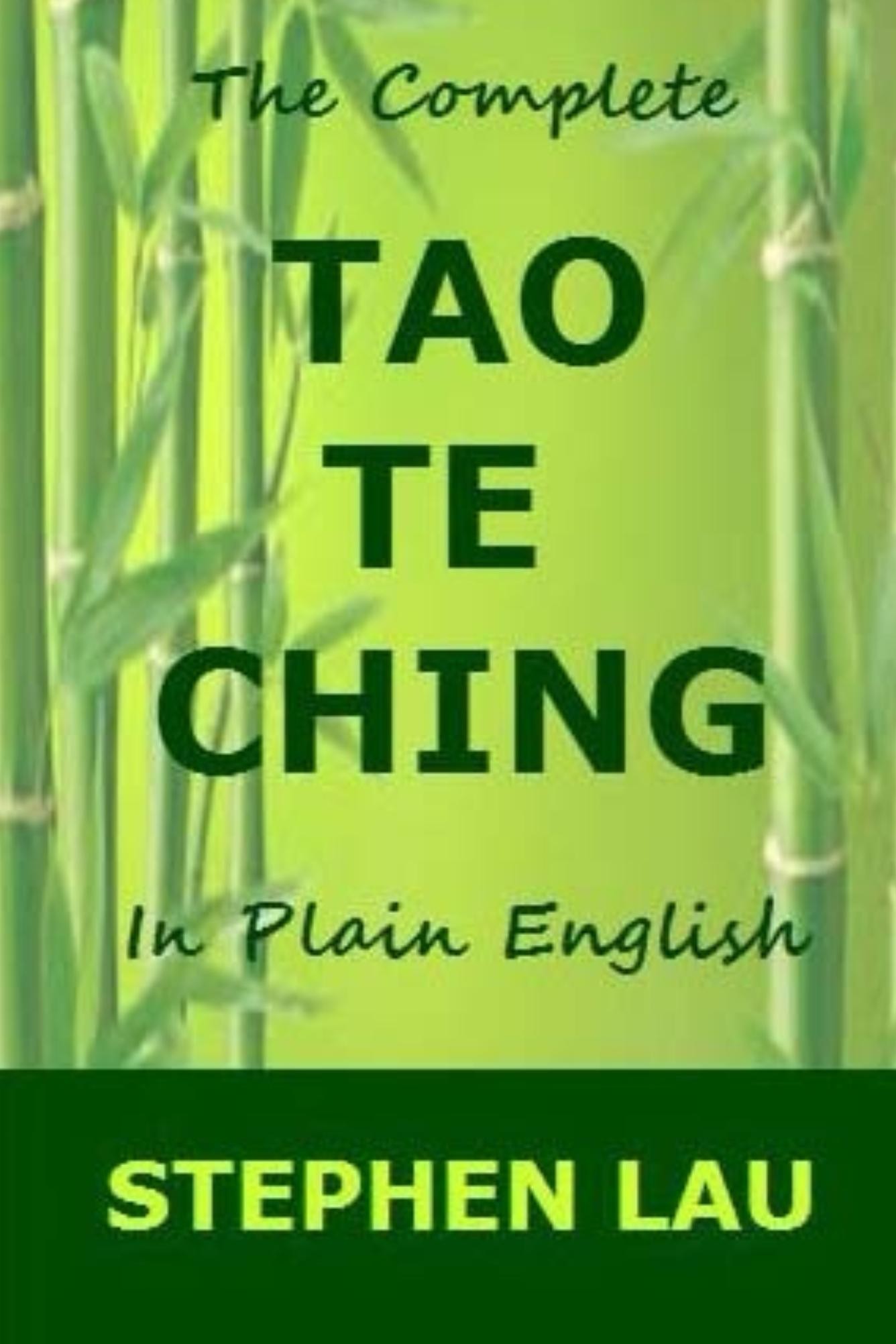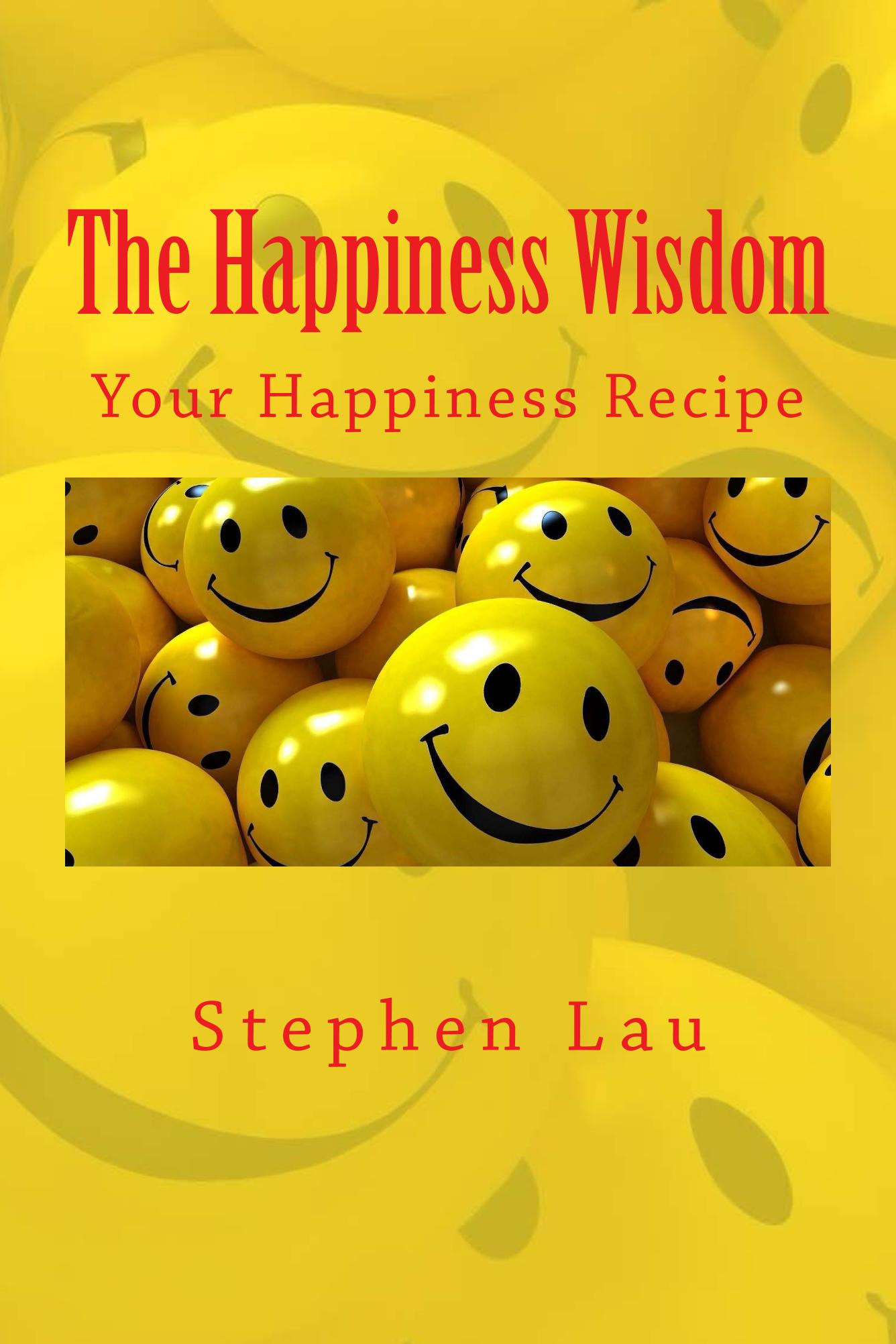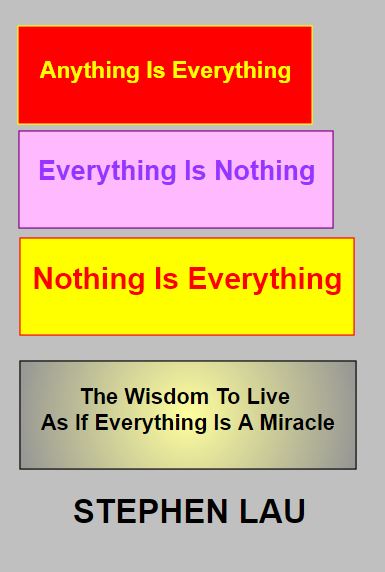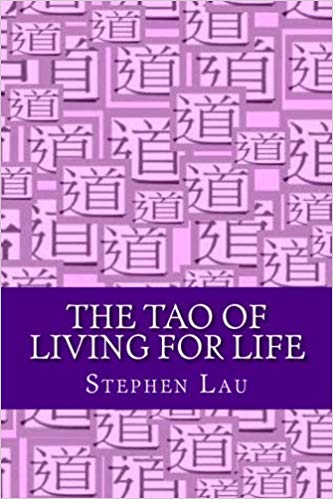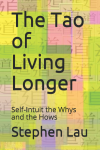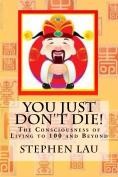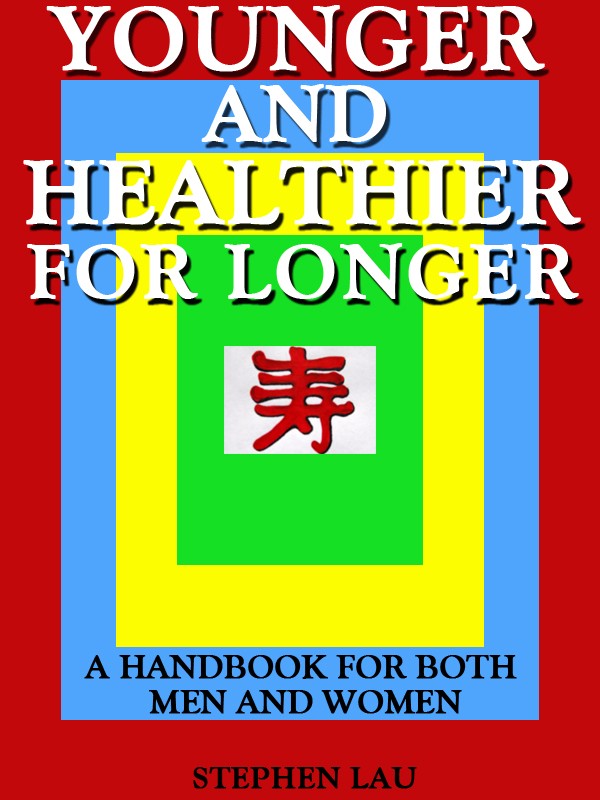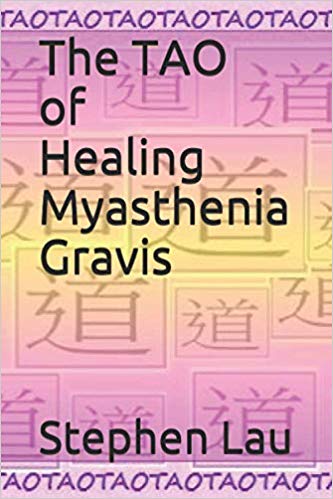
The TAO of Living Longer
by
Stephen Lau
by
Stephen Lau


Stephen Lau's
book about living longer
book about living longer


The TAO of Living Longer
by
Stephen Lau
This 145-page book is about . . . . .
This book is about TAO, the wisdom of Lao Tzu, the ancient sage from China more than 2,600 years ago. His unique and controversial wisdom shows you how to think. It is your thinking mind that may make you live longer. Continue and go through the rest of your life journey with self-awakening to the realities of your true self, of the others around you, and of the world you are living in. Look at anything and everything through the lens of the TAO. According to the TAO, the end of anything is always the beginning of something else; the material world you are living in is forever filled with these cycles of beginnings and endings. Get the profound wisdom to intuit these cycles of balance and harmony so that you may continue the rest of your life journey and live as if everything is a miracle.
Here is the outline of the book . . . . . .
INTRODUCTION
ONE: THE QUESTIONS AND THE ANSWERS
TWO: THE THINKING MIND
The Composition of the Thinking Mind
The Thinking Process
The Conscious Mind and the Subconscious Mind
The The Power of the Thinking Mind
The Role of the Thinking Mind
THREE: THE WISDOM
The Ancient Wisdom
The Eastern Wisdom
The Conventional Wisdom
The Spiritual Wisdom
The Essence of True Wisdom
FOUR: THE TAO
Tao Te Ching
Empty Mind and Reverse Thinking
The Mind and the Now
Humility and the Ego
No Judgment and No Separation
No Picking and No Choosing
No Expectation and No Over-Doing
Control and Spontaneity
Embracing and Letting Go
Embracing and Letting Go
The Awakening and the Manifestation
FIVE: YOUR JOURNEY OF LIVING LONGER
The Step of Intent and Desire
The Step of Unlearning and Relearning
The Step of Body Awareness and Mind Focus
The Step of Being and Becoming
The Step of Actions and Inactions
The Step of Recovery and Rejuvenation
The Step of Patience and Perseverance
The Step of Accepting and Embracing
The Step of Confronting Changes and Challenges
The Step of Returning and Awakening
APPENDIX A: THE MEDITATION
APPENDIX B: THE BODY CHEMISTRY
APPENDIX C: THE FAST
ABOUT THE AUTHOR
The word “TAO” in Chinese originally meant “road.” Later, it came to mean “way” and hence “The Way.” The TAO is “The Way” of looking at the world with a certain attitude of mind, which is totally different from that of the West, and that is why it is so intriguing and fascinating, as evidenced by the fact that Tao Te Ching, the book of the TAO by Lao Tzu, is one of the most translated books in the world. The wisdom of the TAO has to be self-intuited, rather than explained in words.
Given that the TAO has to be self-intuited, the TAO is uniquely personal and subjective: what is the TAO to you may not be the TAO to others; just as the saying goes, “one man’s meat is another man’s poison.”
Having said that, the objective of this book is to provide you with some self-awakening inspiration for your self-reflection and self-discovery on the rest of your life journey; without that self-intuition, you may continue to exist for other people, and not for yourself. Now is the time to start putting yourself on the right path with the right mind toward awakening your TAO of living longer.
Stephen Lau
by
Stephen Lau
This 145-page book is about . . . . .
This book is about TAO, the wisdom of Lao Tzu, the ancient sage from China more than 2,600 years ago. His unique and controversial wisdom shows you how to think. It is your thinking mind that may make you live longer. Continue and go through the rest of your life journey with self-awakening to the realities of your true self, of the others around you, and of the world you are living in. Look at anything and everything through the lens of the TAO. According to the TAO, the end of anything is always the beginning of something else; the material world you are living in is forever filled with these cycles of beginnings and endings. Get the profound wisdom to intuit these cycles of balance and harmony so that you may continue the rest of your life journey and live as if everything is a miracle.
Here is the outline of the book . . . . . .
INTRODUCTION
ONE: THE QUESTIONS AND THE ANSWERS
TWO: THE THINKING MIND
The Composition of the Thinking Mind
The Thinking Process
The Conscious Mind and the Subconscious Mind
The The Power of the Thinking Mind
The Role of the Thinking Mind
THREE: THE WISDOM
The Ancient Wisdom
The Eastern Wisdom
The Conventional Wisdom
The Spiritual Wisdom
The Essence of True Wisdom
FOUR: THE TAO
Tao Te Ching
Empty Mind and Reverse Thinking
The Mind and the Now
Humility and the Ego
No Judgment and No Separation
No Picking and No Choosing
No Expectation and No Over-Doing
Control and Spontaneity
Embracing and Letting Go
Embracing and Letting Go
The Awakening and the Manifestation
FIVE: YOUR JOURNEY OF LIVING LONGER
The Step of Intent and Desire
The Step of Unlearning and Relearning
The Step of Body Awareness and Mind Focus
The Step of Being and Becoming
The Step of Actions and Inactions
The Step of Recovery and Rejuvenation
The Step of Patience and Perseverance
The Step of Accepting and Embracing
The Step of Confronting Changes and Challenges
The Step of Returning and Awakening
APPENDIX A: THE MEDITATION
APPENDIX B: THE BODY CHEMISTRY
APPENDIX C: THE FAST
ABOUT THE AUTHOR
The word “TAO” in Chinese originally meant “road.” Later, it came to mean “way” and hence “The Way.” The TAO is “The Way” of looking at the world with a certain attitude of mind, which is totally different from that of the West, and that is why it is so intriguing and fascinating, as evidenced by the fact that Tao Te Ching, the book of the TAO by Lao Tzu, is one of the most translated books in the world. The wisdom of the TAO has to be self-intuited, rather than explained in words.
Given that the TAO has to be self-intuited, the TAO is uniquely personal and subjective: what is the TAO to you may not be the TAO to others; just as the saying goes, “one man’s meat is another man’s poison.”
Having said that, the objective of this book is to provide you with some self-awakening inspiration for your self-reflection and self-discovery on the rest of your life journey; without that self-intuition, you may continue to exist for other people, and not for yourself. Now is the time to start putting yourself on the right path with the right mind toward awakening your TAO of living longer.
Stephen Lau
The Complete TAO TE CHING in Plain English
by Stephen Lau
This book contains the 81 chapters of the translated text of the ancient Chinese classic on human wisdom, written by the Chinese sage Lao Tzu. It also explains in plain English the essentials of Tao wisdom, which is the wisdom of TAO TE CHING.
For more information, click here.
by Stephen Lau
This book contains the 81 chapters of the translated text of the ancient Chinese classic on human wisdom, written by the Chinese sage Lao Tzu. It also explains in plain English the essentials of Tao wisdom, which is the wisdom of TAO TE CHING.
For more information, click here.
“Experience is not what happens to you; it is what you do with what happens to you.” Aldous Huxley
“Just try to be happy. Unhappiness starts with wanting to be happier.” Sam Levenson
“for riches do not endure forever,
and a crown is not secure for all erations.” (Proverbs 27: 24)
“The art and science of asking questions is the source of all knowledge.” Thomas Berger
“The reason man may become the master of his own destiny is because he has the power to influence his own subconscious mind.” Napoleon Hill
“Just try to be happy. Unhappiness starts with wanting to be happier.” Sam Levenson
“for riches do not endure forever,
and a crown is not secure for all erations.” (Proverbs 27: 24)
“The art and science of asking questions is the source of all knowledge.” Thomas Berger
“The reason man may become the master of his own destiny is because he has the power to influence his own subconscious mind.” Napoleon Hill
Double click to edit

My Way! No Way! TAO Is The Way! by Stephen Lau
This is one-of-a-kind approach to depression, a mind disorder in a world of depression.
Unlike the conventional ways of avoiding depression, such as the use of exercise as distraction,.suppressing the symptoms, such as the use of affirmations or visualizations, and up lifting the depressive moods using medications, this new approach uses the ancient TAO wisdom from China to let you fully experience anything and everything in depression.
TAO wisdom is the way through depression, instead of avoiding it. You may become enlightened and free yourself of depression forever; if not, at least you may look at your depression differently.
To find out more and to read some excerpts from the book, click here.
This is one-of-a-kind approach to depression, a mind disorder in a world of depression.
Unlike the conventional ways of avoiding depression, such as the use of exercise as distraction,.suppressing the symptoms, such as the use of affirmations or visualizations, and up lifting the depressive moods using medications, this new approach uses the ancient TAO wisdom from China to let you fully experience anything and everything in depression.
TAO wisdom is the way through depression, instead of avoiding it. You may become enlightened and free yourself of depression forever; if not, at least you may look at your depression differently.
To find out more and to read some excerpts from the book, click here.

The following is another excerpt from the book:
RICHES AND RAGS
From Riches to Rags
According to the Harvard Business Review, wealth and happiness are not positively correlated, because wealth may make people less generous and more domineering. In addition, wealth may not bring out the best of an individual: the more money that individual has, the more focused on self that individual may become, and so the less sensitive to the needs of people around, as well as the more likely to do the wrong things due to the feeling of right and entitlement.
A Case in Point
Barblara Woolworth Hutton, also known as “the poor little rich girl”, was one of the wealthiest women in the world during the Great Depression. She had experienced an unhappy childhood with the early loss of her mother at age five and the neglect of her father, setting her the stage for a life of difficulty in forming relationships.
Married and divorced seven times, she acquired grand foreign titles, but was maliciously treated and exploited by several of her husbands. Publicly, she was much envied for her lavish lifestyle and her exuberant wealth; privately, she was very insecure and unhappy, leading to addiction and fornication.
She died of a heart attack at age 66. At her death, the formerly wealthy Hutton was on the verge of bankruptcy as a result of exploitation, as well as her own lavish and luxurious lifestyle.
Barbara Hutton was the unhappy poor little rich girl! She was widely reported in the media, and her story was even made into a Hollywood movie: “The Poor Little Rich Girl.”
From Rags to Riches
Christopher Paul Gardner, an American entrepreneur, investor, author, and philanthropist, was very poor and homeless in the early 1980s. Sleeping on the floor of a public toilet, Gardner never dreamt that he would become a multi-millionaire one day. His inspiring life story was made into a hit Hollywood movie: “The Pursuit of Happyness.”
Gardner was brought up with the belief that he could do or be anything that he wanted to do or be. He was homeless, but he was not hopeless. He dreamed of wealth and success, and his dreams were not mirages. Because of his right doing, he made his dreams come true.
Initially, Gardner made his living by selling medical equipment. He did not make enough money to make both ends meet, and his poverty made him homeless for a year.
Then, one day, Gardner met a stockbroker in a red Ferrari, who offered him internship because of his incredible drive and sustained enthusiasm. He had a successful investment career, and he subsequently opened his own investment firm, Gardner Rich & Co.
More than two decades later, after the death of his wife, who challenged him to find his true happiness and fulfillment in the remainder of his life, Gardner made a complete career change. He became a philanthropist and a motivation speaker traveling around the world, focusing not on his own wealth, but on humanity and helping others to get their happiness.
According to Gardner, life journey is always a process of lesson learning and forward moving:
“People often ask me would I trade anything from my past, and I quickly tell them no, because my past helped to make me into the person I am today.”
On that life journey, mental focus is essential: focusing not just on the big things in life but also on the small things as well; appreciating what you have rather than dwelling on what you lack.
“Then again, what seems like nothing in the eyes of the world, when properly valued and put to use, can be among the greatest riches.”
“Wealth can also be that attitude of gratitude with which we remind ourselves everyday to count our blessings.”
“The balance in your life is more important than the balance in your checking account.”
The bottom line: according to Gardner, everything begins with self-belief and doing.
“I just wanted to make a million dollars. But I couldn’t sing and I couldn’t play ball, so I said to my mother, ‘How am I going to make a million dollars?’ And she said to me, ‘Son, if you believe you can do it, you will.’”
“It can be done, but you have to make it happen.”
Conventional Wisdom
Studies after studies by psychologists have shown that there is no correlation between wealth and happiness. The only exception is in cases of real poverty, when extra income relieves suffering and brings security. But once the basic material needs are satisfied, the level of income makes little difference to the perceived level of happiness.
The bottom line: let go of the madness of materialism! The Beatles rightly said in their song that money can’t buy love, and neither can it buy happiness.
Tao wisdom
According to Tao wisdom, money is neither positive nor negative; it is all in the human mind.
But how you make your money and how you spend your money may turn money into something either positive or negative.
To increase your wealth in a positive way, focus on doing what needs to be done, and no more. On the other hand, the more you do to make more money, the less focused you become, and the greater are your expectations of the outcome. That may ultimately create not only undue stress but also internal disharmony in your life, turning money into something negative, and making you unhappy.
Increasing your wealth, however, does not necessarily mean spending your money proportionately. That is to say, an individual making more money does not have to buy a much bigger house than what that individual actually needs. To illustrate, Warren Buffet, the billionaire, has set an excellent example: he is still living in his $31,500 home he bought some decades ago.
Spiritual Wisdom
Material riches are regarded by the Scriptures as neither good nor bad in themselves, but only according to whether they are properly or improperly used.
But all material riches are transitory, and they do not last.
“for riches do not endure forever,
and a crown is not secure for all generations.” (Proverbs 27: 24)
Therefore, set your heart on what is eternal, which is above, instead of the transient, which is below.
“Do not trust in extortion
or put vain hope in stolen goods;
though your riches increase,
do not set your heart on them.”
(Psalm 62: 10)
Jesus said a good man has good treasures, and an evil man has evil ones:
“A good man brings good things out of the good stored up in him, and an evil man brings evil out of the evil stored up in him.”
(Matthew 12: 35)
Prioritize your wants, and ask yourself these questions: Am I obsessed with material riches? Do I always want more?
“Why spend money on what is not bread,
and your labor on what does not satisfy?
Listen, listen to me, and eat what is good,
and you will delight in the richest of fare.”
(Isaiah 55: 2)
RICHES AND RAGS
From Riches to Rags
According to the Harvard Business Review, wealth and happiness are not positively correlated, because wealth may make people less generous and more domineering. In addition, wealth may not bring out the best of an individual: the more money that individual has, the more focused on self that individual may become, and so the less sensitive to the needs of people around, as well as the more likely to do the wrong things due to the feeling of right and entitlement.
A Case in Point
Barblara Woolworth Hutton, also known as “the poor little rich girl”, was one of the wealthiest women in the world during the Great Depression. She had experienced an unhappy childhood with the early loss of her mother at age five and the neglect of her father, setting her the stage for a life of difficulty in forming relationships.
Married and divorced seven times, she acquired grand foreign titles, but was maliciously treated and exploited by several of her husbands. Publicly, she was much envied for her lavish lifestyle and her exuberant wealth; privately, she was very insecure and unhappy, leading to addiction and fornication.
She died of a heart attack at age 66. At her death, the formerly wealthy Hutton was on the verge of bankruptcy as a result of exploitation, as well as her own lavish and luxurious lifestyle.
Barbara Hutton was the unhappy poor little rich girl! She was widely reported in the media, and her story was even made into a Hollywood movie: “The Poor Little Rich Girl.”
From Rags to Riches
Christopher Paul Gardner, an American entrepreneur, investor, author, and philanthropist, was very poor and homeless in the early 1980s. Sleeping on the floor of a public toilet, Gardner never dreamt that he would become a multi-millionaire one day. His inspiring life story was made into a hit Hollywood movie: “The Pursuit of Happyness.”
Gardner was brought up with the belief that he could do or be anything that he wanted to do or be. He was homeless, but he was not hopeless. He dreamed of wealth and success, and his dreams were not mirages. Because of his right doing, he made his dreams come true.
Initially, Gardner made his living by selling medical equipment. He did not make enough money to make both ends meet, and his poverty made him homeless for a year.
Then, one day, Gardner met a stockbroker in a red Ferrari, who offered him internship because of his incredible drive and sustained enthusiasm. He had a successful investment career, and he subsequently opened his own investment firm, Gardner Rich & Co.
More than two decades later, after the death of his wife, who challenged him to find his true happiness and fulfillment in the remainder of his life, Gardner made a complete career change. He became a philanthropist and a motivation speaker traveling around the world, focusing not on his own wealth, but on humanity and helping others to get their happiness.
According to Gardner, life journey is always a process of lesson learning and forward moving:
“People often ask me would I trade anything from my past, and I quickly tell them no, because my past helped to make me into the person I am today.”
On that life journey, mental focus is essential: focusing not just on the big things in life but also on the small things as well; appreciating what you have rather than dwelling on what you lack.
“Then again, what seems like nothing in the eyes of the world, when properly valued and put to use, can be among the greatest riches.”
“Wealth can also be that attitude of gratitude with which we remind ourselves everyday to count our blessings.”
“The balance in your life is more important than the balance in your checking account.”
The bottom line: according to Gardner, everything begins with self-belief and doing.
“I just wanted to make a million dollars. But I couldn’t sing and I couldn’t play ball, so I said to my mother, ‘How am I going to make a million dollars?’ And she said to me, ‘Son, if you believe you can do it, you will.’”
“It can be done, but you have to make it happen.”
Conventional Wisdom
Studies after studies by psychologists have shown that there is no correlation between wealth and happiness. The only exception is in cases of real poverty, when extra income relieves suffering and brings security. But once the basic material needs are satisfied, the level of income makes little difference to the perceived level of happiness.
The bottom line: let go of the madness of materialism! The Beatles rightly said in their song that money can’t buy love, and neither can it buy happiness.
Tao wisdom
According to Tao wisdom, money is neither positive nor negative; it is all in the human mind.
But how you make your money and how you spend your money may turn money into something either positive or negative.
To increase your wealth in a positive way, focus on doing what needs to be done, and no more. On the other hand, the more you do to make more money, the less focused you become, and the greater are your expectations of the outcome. That may ultimately create not only undue stress but also internal disharmony in your life, turning money into something negative, and making you unhappy.
Increasing your wealth, however, does not necessarily mean spending your money proportionately. That is to say, an individual making more money does not have to buy a much bigger house than what that individual actually needs. To illustrate, Warren Buffet, the billionaire, has set an excellent example: he is still living in his $31,500 home he bought some decades ago.
Spiritual Wisdom
Material riches are regarded by the Scriptures as neither good nor bad in themselves, but only according to whether they are properly or improperly used.
But all material riches are transitory, and they do not last.
“for riches do not endure forever,
and a crown is not secure for all generations.” (Proverbs 27: 24)
Therefore, set your heart on what is eternal, which is above, instead of the transient, which is below.
“Do not trust in extortion
or put vain hope in stolen goods;
though your riches increase,
do not set your heart on them.”
(Psalm 62: 10)
Jesus said a good man has good treasures, and an evil man has evil ones:
“A good man brings good things out of the good stored up in him, and an evil man brings evil out of the evil stored up in him.”
(Matthew 12: 35)
Prioritize your wants, and ask yourself these questions: Am I obsessed with material riches? Do I always want more?
“Why spend money on what is not bread,
and your labor on what does not satisfy?
Listen, listen to me, and eat what is good,
and you will delight in the richest of fare.”
(Isaiah 55: 2)
Click here to get your copy: paperback or electronic copy.
An Excerpt from the Book . . . . .
WHY YOU WANT TO LIVE LONGER
If you wish to live longer or to a ripe old age, you must ask yourself many questions about life; after all, living is about asking questions and seeking answers to the questions asked. Living for life in this contemporary world may never be easy because it requires wisdom, which is essentially finding answers to the questions asked about life and living, and then applying those answers to everyday living in the material world.
Have you ever wondered: there has to be much more to life than this-the kind of life that you are living right now?
If you have, then maybe you should, first and foremost, ask yourself questions about why you want to live longer. Your reasons could be some of the following:
You desire to live a better life than the one that you are currently living.
You want to see your children or grandchildren grow up and mature into adults.
You have your life passions, some of which are already accomplished, while others are being pursued but remaining unfulfilled.
You are experiencing some core values, which are not just your life goals but rather your beliefs in humanity that have to be lived in order to fully experience the meaning of existence as well as the innate happiness in humanity.
You still like to enjoy some of the mundane pleasures of life and living that have satisfied your five senses.
You love to maintain good relationships and true friendships with those who are close and dear to you.
You may be fighting some life challenges or health issues-just like Alex Trebek, the 77-year-old TV celebrity famous for hosting NBC's “Jeopardy”, who openly declared in 2019 that he had to live longer in order to fight his pancreatic cancer because of his still-standing three-year contract with NBC.
Asking the question “Why you want to live longer?” may initiate many other why questions specifically related to you, to others close to you, and to the world around you. Living is all about asking the many why and how questions in your everyday life and living.
Stephen Lau
Copyright© by Stephen Lau
WHY YOU WANT TO LIVE LONGER
If you wish to live longer or to a ripe old age, you must ask yourself many questions about life; after all, living is about asking questions and seeking answers to the questions asked. Living for life in this contemporary world may never be easy because it requires wisdom, which is essentially finding answers to the questions asked about life and living, and then applying those answers to everyday living in the material world.
Have you ever wondered: there has to be much more to life than this-the kind of life that you are living right now?
If you have, then maybe you should, first and foremost, ask yourself questions about why you want to live longer. Your reasons could be some of the following:
You desire to live a better life than the one that you are currently living.
You want to see your children or grandchildren grow up and mature into adults.
You have your life passions, some of which are already accomplished, while others are being pursued but remaining unfulfilled.
You are experiencing some core values, which are not just your life goals but rather your beliefs in humanity that have to be lived in order to fully experience the meaning of existence as well as the innate happiness in humanity.
You still like to enjoy some of the mundane pleasures of life and living that have satisfied your five senses.
You love to maintain good relationships and true friendships with those who are close and dear to you.
You may be fighting some life challenges or health issues-just like Alex Trebek, the 77-year-old TV celebrity famous for hosting NBC's “Jeopardy”, who openly declared in 2019 that he had to live longer in order to fight his pancreatic cancer because of his still-standing three-year contract with NBC.
Asking the question “Why you want to live longer?” may initiate many other why questions specifically related to you, to others close to you, and to the world around you. Living is all about asking the many why and how questions in your everyday life and living.
Stephen Lau
Copyright© by Stephen Lau
